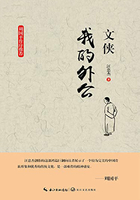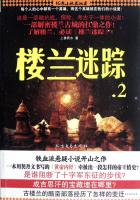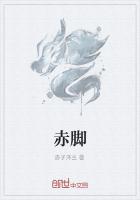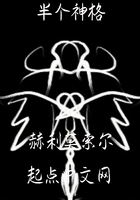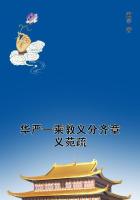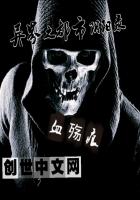Chapter1 Abbas Beati Martini
Dom Claude's fame had spread far and wide. It procured for him, at about the epoch when he refused to see Madame de Beaujeu, a visit which he long remembered.
It was in the evening. He had just retired, after the office, to his canon's cell in the cloister of Notre-Dame.This cell, with the exception, possibly, of some glass phials, relegated to a corner, and filled with a decidedly equivocal powder, which strongly resembled the alchemist's“powder of projection, ”presented nothing strange or mysterious.There were, indeed, here and there, some inions on the walls, but they were pure sentences of learning and piety, extracted from good authors.The archdeacon had just seated himself, by the light of a three-jetted copper lamp, before a vast coffer crammed with manus.He had rested his elbow upon the open volume of Honorius d'Autun, De predestinatione et libero arbitrio, and he was turning over, in deep meditation, the leaves of a printed folio which he had just brought, the sole product of the press which his cell contained.In the midst of his revery there came a knock at his door.“Who's there?”cried the learned man, in the gracious tone of a famished dog, disturbed over his bone.
A voice without replied, “Your friend, Jacques Coictier.”He went to open the door.
It was, in fact, the king's physician; a person about fifty years of age, whose harsh physiognomy was modified only by a crafty eye. Another man accompanied him.Both wore long slate-colored robes, furred with minever, girded and closed, with caps of the same stuff and hue.Their hands were concealed by their sleeves, their feet by their robes, their eyes by their caps.
“God help me, messieurs!”said the archdeacon, showing them in; “I was not expecting distinguished visitors at such an hour.”And while speaking in this courteous fashion he cast an uneasy and scrutinizing glance from the physician to his companion.
“'Tis never too late to come and pay a visit to so considerable a learned man as Dom Claude Frollo de Tirechappe, ”replied Doctor Coictier, whose Franche-Comt?accent made all his phrases drag along with the majesty of a train-robe.
There then ensued between the physician and the archdeacon one of those congratulatory prologues which, in accordance with custom, at that epoch preceded all conversations between learned men, and which did not prevent them from detesting each other in the most cordial manner in the world. However, it is the same nowadays; every wise man's mouth complimenting another wise man is a vase of honeyed gall.
Claude Frollo's felicitations to Jacques Coictier bore reference principally to the temporal advantages which the worthy physician had found means to extract, in the course of his much envied career, from each malady of the king, an operation of alchemy much better and more certain than the pursuit of the philosopher's stone.
“In truth, Monsieur le Docteur Coictier, I felt great joy on learning of the bishopric given your nephew, my reverend seigneur Pierre Verse. Is he not Bishop of Amiens?”
“Yes, monsieur Archdeacon; it is a grace and mercy of God.”
“Do you know that you made a great figure on Christmas Day at the bead of your company of the chamber of accounts, Monsieur President?”
“Vice-President, Dom Claude. Alas!nothing more.”
“How is your superb house in the Rue Saint-Andr?des Arcs coming on?'Tis a Louvre. I love greatly the apricot tree which is carved on the door, with this play of words:'A L'ABRI-COTIER—Sheltered from reefs.'”
“Alas!Master Claude, all that masonry costeth me dear. In proportion as the house is erected, I am ruined.”
“Ho!have you not your revenues from the jail, and the bailiwick of the Palais, and the rents of all the houses, sheds, stalls, and booths of the enclosure?'Tis a fine breast to suck.”
“My castellany of Poissy has brought me in nothing this year.”
“But your tolls of Triel, of Saint-James, of Saint-Germainen-Laye are always good.”
“Six score livres, and not even Parisian livres at that.”
“You have your office of counsellor to the king. That is fixed.”
“Yes, brother Claude; but that accursed seigneury of Poligny, which people make so much noise about, is worth not sixty gold crowns, year out and year in.”
In the compliments which Dom Claude addressed to Jacques Coictier, there was that sardonical, biting, and covertly mocking accent, and the sad cruel smile of a superior and unhappy man who toys for a moment, by way of distraction, with the dense prosperity of a vulgar man. The other did not perceive it.
“Upon my soul, ”said Claude at length, pressing his hand, “I am glad to see you and in such good health.”
“Thanks, Master Claude.”
“By the way, ”exclaimed Dom Claude, “how is your royal patient?”
“He payeth not sufficiently his physician, ”replied the doctor, casting a side glance at his companion.
“Think you so, Gossip Coictier, ”said the latter.
These words, uttered in a tone of surprise and reproach, drew upon this unknown personage the attention of the archdeacon which, to tell the truth, had not been diverted from him a single moment since the stranger had set foot across the threshold of his cell. It had even required all the thousand reasons which he had for handling tenderly Doctor Jacques Coictier, the all-powerful physician of King Louis XI., to induce him to receive the latter thus accompanied.Hence, there was nothing very cordial in his manner when Jacques Coictier said to him, —
“By the way, Dom Claude, I bring you a colleague who has desired to see you on account of your reputation.”
“Monsieur belongs to science?”asked the archdeacon, fixing his piercing eye upon Coictier's companion. He found beneath the brows of the stranger a glance no less piercing or less distrustful than his own.
He was, so far as the feeble light of the lamp permitted one to judge, an old man about sixty years of age and of medium stature, who appeared somewhat sickly and broken in health. His profile, although of a very ordinary outline, had something powerful and severe about it; his eyes sparkled beneath a very deep superciliary arch, like a light in the depths of a cave; and beneath his cap which was well drawn down and fell upon his nose, one recognized the broad expanse of a brow of genius.
He took it upon himself to reply to the archdeacon's question, —
“Reverend master, ”he said in a grave tone, “your renown has reached my ears, and I wish to consult you. I am but a poor provincial gentleman, who removeth his shoes before entering the dwellings of the learned.You must know my name.I am called Gossip Tourangeau.”
“Strange name for a gentleman, ”said the archdeacon to himself.
Nevertheless, he had a feeling that he was in the presence of a strong and earnest character. The instinct of his own lofty intellect made him recognize an intellect no less lofty under Gossip Tourangeau's furred cap, and as he gazed at the solemn face, the ironical smile which Jacques Coictier's presence called forth on his gloomy face, gradually disappeared as twilight fades on the horizon of night.Stern and silent, he had resumed his seat in his great armchair; his elbow rested as usual, on the table, and his brow on his hand.After a few moments of reflection, he motioned his visitors to be seated, and, turning to Gossip Tourangeau he said, —
“You come to consult me, master, and upon what science?”
“Your reverence, ”replied Tourangeau, “I am ill, very ill. You are said to be great AEsculapius, and I am come to ask your advice in medicine.”
“Medicine!”said the archdeacon, tossing his head. He seemed to meditate for a moment, and then resumed:“Gossip Tourangeau, since that is your name, turn your head, you will find my reply already written on the wall.”
Gossip Tourangeau obeyed, and read this inion engraved above his head:“Medicine is the daughter of dreams.—JAMBLIQUE.”
Meanwhile, Doctor Jacques Coictier had heard his companion's question with a displeasure which Dom Claude's response had but redoubled.He bent down to the ear of Gossip Tourangeau, and said to him, softly enough not to be heard by the archdeacon:“I warned you that he was mad. You insisted on seeing him.”
“'Tis very possible that he is right, madman as he is, Doctor Jacques, ”replied his comrade in the same low tone, and with a bitter smile.
“As you please, ”replied Coictier dryly. Then, addressing the archdeacon:“You are clever at your trade, Dom Claude, and you are no more at a loss over Hippocrates than a monkey is over a nut.Medicine a dream!I suspect that the pharmacopolists and the master physicians would insist upon stoning you if they were here.So you deny the influence of philtres upon the blood, and unguents on the skin!You deny that eternal pharmacy of flowers and metals, which is called the world, made expressly for that eternal invalid called man!”
“I deny, ”said Dom Claude coldly, “neither pharmacy nor the invalid. I reject the physician.”
“Then it is not true, ”resumed Coictier hotly, “that gout is an internal eruption; that a wound caused by artillery is to be cured by the application of a young mouse roasted; that young blood, properly injected, restores youth to aged veins; it is not true that two and two make four, and that emprostathonos follows opistathonos.”
The archdeacon replied without perturbation:“There are certain things of which I think in a certain fashion.”
Coictier became crimson with anger.
“There, there, my good Coictier, let us not get angry, ”said Gossip Tourangeau.“Monsieur the archdeacon is our friend.”
Coictier calmed down, muttering in a low tone, —
“After all, he's mad.”
“Pasque-dieu, Master Claude, ”resumed Gossip Tourangeau, after a silence, “You embarrass me greatly. I had two things to consult you upon, one touching my health and the other touching my star.”
“Monsieur, ”returned the archdeacon, “if that be your motive, you would have done as well not to put yourself out of breath climbing my staircase. I do not believe in Medicine.I do not believe in Astrology.”
“Indeed!”said the man, with surprise.
Coictier gave a forced laugh.
“You see that he is mad, ”he said, in a low tone, to Gossip Tourangeau.“He does not believe in astrology.”
“The idea of imagining, ”pursued Dom Claude, “that every ray of a star is a thread which is fastened to the head of a man!”
“And what then, do you believe in?”exclaimed Gossip Tourangeau.
The archdeacon hesitated for a moment, then he allowed a gloomy smile to escape, which seemed to give the lie to his response:“Credo in Deum.”
“Dominum nostrum, ”added Gossip Tourangeau, ****** the sign of the cross.
“Amen, ”said Coictier.
“Reverend master, ”resumed Tourangeau, “I am charmed in soul to see you in such a religious frame of mind. But have you reached the point, great savant as you are, of no longer believing in science?”
“No, ”said the archdeacon, grasping the arm of Gossip Tourangeau, and a ray of enthusiasm lighted up his gloomy eyes, “no, I do not reject science. I have not crawled so long, flat on my belly, with my nails in the earth, through the innumerable ramifications of its caverns, without perceiving far in front of me, at the end of the obscure gallery, a light, a flame, a something, the reflection, no doubt, of the dazzling central laboratory where the patient and the wise have found out God.”
“And in short, ”interrupted Tourangeau, “what do you hold to be true and certain?”
“Alchemy.”
Coictier exclaimed, “Pardieu, Dom Claude, alchemy has its use, no doubt, but why blaspheme medicine and astrology?”
“Naught is your science of man, naught is your science of the stars, ”said the archdeacon, commandingly.
“That's driving Epidaurus and Chaldea very fast, ”replied the physician with a grin.
“Listen, Messire Jacques.This is said in good faith.I am not the king's physician, and his majesty has not given me the Garden of Daedalus in which to observe the constellations.Don't get angry, but listen to me.What truth have you deduced, I will not say from medicine, which is too foolish a thing, but from astrology?Cite to me the virtues of the vertical boustrophedon, the treasures of the number ziruph and those of the number zephirod!”
“Will you deny, ”said Coictier, “the sympathetic force of the collar bone, and the cabalistics which are derived from it?”
“An error, Messire Jacques!None of your formulas end in reality. Alchemy on the other hand has its discoveries.Will you contest results like this?Ice confined beneath the earth for a thousand years is transformed into rock crystals.Lead is the ancestor of all metals.For gold is not a metal, gold is light.Lead requires only four periods of two hundred years each, to pass in succession from the state of lead, to the state of red arsenic, from red arsenic to tin, from tin to silver.Are not these facts?But to believe in the collar bone, in the full line and in the stars, is as ridiculous as to believe with the inhabitants of Grand-Cathay that the golden oriole turns into a mole, and that grains of wheat turn into fish of the carp species.”
“I have studied hermetic science!”exclaimed Coictier, “and I affirm—”
The fiery archdeacon did not allow him to finish:“And I have studied medicine, astrology, and hermetics. Here alone is the truth.”“Here alone is light!Hippocrates is a dream; Urania is a dream; Hermes, a thought.Gold is the sun; to make gold is to be God.Herein lies the one and only science.I have sounded the depths of medicine and astrology, I tell you!Naught, nothingness!The human body, shadows!the planets, shadows!”
And he fell back in his armchair in a commanding and inspired attitude. Gossip Touraugeau watched him in silence.Coictier tried to grin, shrugged his shoulders imperceptibly, and repeated in a low voice, —
“A madman!”
“And, ”said Tourangeau suddenly, “the wondrous result, —have you attained it, have you made gold?”
“If I had made it, ”replied the archdeacon, articulating his words slowly, like a man who is reflecting, “the king of France would be named Claude and not Louis.”
The stranger frowned.
“What am I saying?”resumed Dom Claude, with a smile of disdain.“What would the throne of France be to me when I could rebuild the empire of the Orient?”
“Very good!”said the stranger.
“Oh, the poor fool!”murmured Coictier.
The archdeacon went on, appearing to reply now only to his thoughts, —
“But no, I am still crawling; I am scratching my face and knees against the pebbles of the subterranean pathway. I catch a glimpse, I do not contemplate!I do not read, I spell out!”
“And when you know how to read!”demanded the stranger, “will you make gold?”
“Who doubts it?”said the archdeacon.
“In that case Our Lady knows that I am greatly in need of money, and I should much desire to read in your books. Tell me, reverend master, is your science inimical or displeasing to Our Lady?”
“Whose archdeacon I am?”Dom Claude contented himself with replying, with tranquil hauteur.
“That is true, my master. Well!will it please you to initiate me?Let me spell with you.”
Claude assumed the majestic and pontifical attitude of a Samuel.
“Old man, it requires longer years than remain to you, to undertake this voyage across mysterious things.Your head is very gray!One comes forth from the cavern only with white hair, but only those with dark hair enter it.Science alone knows well how to hollow, wither, and dry up human faces; she needs not to have old age bring her faces already furrowed.Nevertheless, if the desire possesses you of putting yourself under discipline at your age, and of deciphering the formidable alphabet of the sages, come to me; 'tis well, I will make the effort.I will not tell you, poor old man, to go and visit the sepulchral chambers of the pyramids, of which ancient Herodotus speaks, nor the brick tower of Babylon, nor the immense white marble sanctuary of the Indian temple of Eklinga.I, no more than yourself, have seen the Chaldean masonry works constructed according to the sacred form of the Sikra, nor the temple of Solomon, which is destroyed, nor the stone doors of the sepulchre of the kings of Israel, which are broken.We will content ourselves with the fragments of the book of Hermes which we have here.I will explain to you the statue of Saint Christopher, the symbol of the sower, and that of the two angels which are on the front of the Sainte-Chapelle, and one of which holds in his hands a vase, the other, a cloud—”
Here Jacques Coictier, who had been unhorsed by the archdeacon's impetuous replies, regained his saddle, and interrupted him with the triumphant tone of one learned man correcting another, —”Erras amice Claudi. The symbol is not the number.You take Orpheus for Hermes.”
“'Tis you who are in error, ”replied the archdeacon, gravely.“Daedalus is the base; Orpheus is the wall; Hermes is the edifice, —that is all. You shall come when you will, ”he continued, turning to Tourangeau, “I will show you the little parcels of gold which remained at the bottom of Nicholas Flamel's alembic, and you shall compare them with the gold of Guillaume de Paris.I will teach you the secret virtues of the Greek word, peristera.But, first of all, I will make you read, one after the other, the marble letters of the alphabet, the granite pages of the book.We shall go to the portal of Bishop Guillaume and of Saint-Jean le Rond at the Sainte-Chapelle, then to the house of Nicholas Flamel, Rue Manvault, to his tomb, which is at the Saints-Innocents, to his two hospitals, Rue de Montmorency.I will make you read the hieroglyphics which cover the four great iron cramps on the portal of the hospital Saint-Gervais, and of the Rue de la Ferronnerie.We will spell out in company, also, the front of Saint-Come, of Sainte-Geneviève-des-Ardents, of Saint Martin, of Saint-Jacques de la Boucherie—.”
For a long time, Gossip Tourangeau, intelligent as was his glance, had appeared not to understand Dom Claude. He interrupted.
“Pasque-dieu!what are your books, then?”
“Here is one of them, ”said the archdeacon.
And opening the window of his cell he pointed out with his finger the immense church of Notre-Dame, which, outlining against the starry sky the black silhouette of its two towers, its stone flanks, its monstrous haunches, seemed an enormous two-headed sphinx, seated in the middle of the city.
The archdeacon gazed at the gigantic edifice for some time in silence, then extending his right hand, with a sigh, towards the printed book which lay open on the table, and his left towards Notre-Dame, and turning a sad glance from the book to the church, —”Alas, ”he said, “this will kill that.”
Coictier, who had eagerly approached the book, could not repress an exclamation.“H?but now, what is there so formidable in this:'GLOSSA IN EPISTOLAS D. PAULI, Norimbergoe, Antonius Koburger, 1474.'This is not new.'Tis a book of Pierre Lombard, the Master of Sentences.Is it because it is printed?”
“You have said it, ”replied Claude, who seemed absorbed in a profound meditation, and stood resting, his forefinger bent backward on the folio which had come from the famous press of Nuremberg. Then he added these mysterious words:“Alas!alas!small things come at the end of great things; a tooth triumphs over a mass.The Nile rat kills the crocodile, the swordfish kills the whale, the book will kill the edifice.”
The curfew of the cloister sounded at the moment when Master Jacques was repeating to his companion in low tones, his eternal refrain, “He is mad!”To which his companion this time replied, “I believe that he is.”
It was the hour when no stranger could remain in the cloister. The two visitors withdrew.“Master, ”said Gossip Tourangeau, as he took leave of the archdeacon, “I love wise men and great minds, and I hold you in singular esteem.Come to-morrow to the Palace des Tournelles, and inquire for the Abbéde Sainte-Martin, of Tours.”
The archdeacon returned to his chamber dumbfounded, comprehending at last who Gossip Tourangeau was, and recalling that passage of the register of Sainte-Martin, of Tours:—Abbas beati Martini, SCILICET REX FRANCIAE, est canonicus de consuetudine et habet parvam proebendam quam habet sanctus Venantius, et debet sedere in sede thesaurarii.
It is asserted that after that epoch the archdeacon had frequent conferences with Louis XI., when his majesty came to Paris, and that Dom Claude's influence quite overshadowed that of Olivier le Daim and Jacques Coictier, who, as was his habit, rudely took the king to task on that account.
Chapter2 This will Kill that
Our lady readers will pardon us if we pause for a moment to seek what could have been the thought concealed beneath those enigmatic words of the archdeacon:“This will kill that. The book will kill the edifice.”
To our mind, this thought had two faces.In the first place, it was a priestly thought.It was the affright of the priest in the presence of a new agent, the printing press.It was the terror and dazzled amazement of the men of the sanctuary, in the presence of the luminous press of Gutenberg.It was the pulpit and the manu taking the alarm at the printed word:something similar to the stupor of a sparrow which should behold the angel Legion unfold his six million wings.It was the cry of the prophet who already hears emancipated humanity roaring and swarming; who beholds in the future, intelligence sapping faith, opinion dethroning belief, the world shaking off Rome. It was the prognostication of the philosopher who sees human thought, volatilized by the press, evaporating from the theocratic recipient.It was the terror of the soldier who examines the brazen battering ram, and says:“The tower will crumble.”It signified that one power was about to succeed another power.It meant, “The press will kill the church.”
But underlying this thought, the first and most ****** one, no doubt, there was in our opinion another, newer one, a corollary of the first, less easy to perceive and more easy to contest, a view as philosophical and belonging no longer to the priest alone but to the savant and the artist. It was a presentiment that human thought, in changing its form, was about to change its mode of expression; that the dominant idea of each generation would no longer be written with the same matter, and in the same manner; that the book of stone, so solid and so durable, was about to make way for the book of paper, more solid and still more durable.In this connection the archdeacon's vague formula had a second sense.It meant, “Printing will kill architecture.”
In fact, from the origin of things down to the fifteenth century of the Christian era, inclusive, architecture is the great book of humanity, the principal expression of man in his different stages of development, either as a force or as an intelligence.
When the memory of the first races felt itself overloaded, when the mass of reminiscences of the human race became so heavy and so confused that speech naked and flying, ran the risk of losing them on the way, men transcribed them on the soil in a manner which was at once the most visible, most durable, and most natural. They sealed each tradition beneath a monument.

